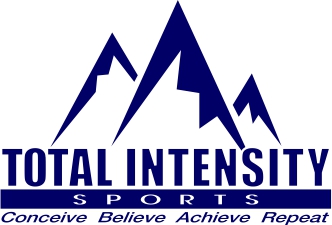
Total Intensity’s Augustine Torres recently completed his tenth Ironman at Ironman Louisville. While the swim was severely shortened due to an abnormally fast current in the Ohio River, and the weather had wet/rainy conditions early in the morning, Augustine persevered and made the best of the day. Ultimately, he put together an incredibly strong run. He PR’d the marathon by about 30 minutes and posted a negative split – not an easy task. He crossed the line in 10:36:38, with a 3:51:05 run split (12th fastest in his age group), good for 22nd in his age group.
As Augustine’s coach, we are continuously working on things that I think are keys to his performance. Namely, developing functional strength which allows his body to sustain the miles necessary for year in, year out, Ironman training. Also, increasing his cadence on the bike, maintaining his cadence when he is running, and staying focused and in the moment rather than letting his mind wander. With all endurance athletes, Augustine included, attentiveness to hydration, nutrition and pacing is critical to success. Post-race, I sat down with Augustine and asked him some questions to analyze his race.
Coach John: You had some bike issues on the ride – what were they exactly?
Augustine: I ran tubeless tires for the first time in a race. At mile 10, I had a flat and the sealant didn’t really kick in until the tire was soft. I pulled over and added a bottle of pit stop and air and that seemed to work. At mile 40, the sealant gave out and the tire went completely flat. At this point I added the second pit stop and more air. The tire held air but for the rest of the race the thought was in the back of mind that I might not finish. The air held, however, and I made it to transition.
Coach John: That had to be frustrating! How did you mentally overcome the bike issues?
Augustine: There were a few different things that helped. One, I was mindful that when you are dealing with physical and/or mechanical issues seconds seem like minutes and minutes seem like hours. I took a deep breath and relaxed. And just dealt with the issues that were dealt to me.
Two, I just tried to put it into perspective. Tomorrow is another day and it IS just a race. As cliché as it sounds, life goes on. I just decided that I would keep riding until I couldn’t ride anymore and tried to enjoy the moment.
Finally, I have multiple goals for my races. Usually I have an overall time goal, transition goals, swim/bike/run split goals and a main goal to just finish the race. The swim was curtailed and I had a disappointing bike time but I still had a goal I could shoot for – under 4:10 in the marathon. The day still was a good day because I met my run goal and ultimately, I finished the race, plus I had good transitions. It’s a long day and one never knows how they will feel and what’s going to happen so having multiple goals help me have some success to leverage in the next race. Regardless of the overall time, finishing is always an awesome feeling.

Coach John: What was your focus while you were riding? Nutrition? Hydration? Cadence? How do you think this impacted your run?
Augustine: My main focus was nutrition. In the past, I’ve bonked at the end of the bike so I knew I needed to solve this. I set a 15-minute alarm on my bike and made sure to take in calories. I had replacement bottles at special needs so I would have the calories. Stopping for a minute or two at special needs may seem like an hour, but I’ve tried to carry everything on the bike before, but it’s much easier just to stop and get the food at special needs. Setting the alarm every 15 minutes forces me to drink. I also drank in more calories towards the end of the bike to make sure that I was eating enough.
Coach John: Your pace on the run was the best I’ve seen you hold – you were clicking off slightly over 9 min/mile in the first half and then sub 9s in the second half. There was hardly any deviation. What do you think the key was to being able to hold your run pace throughout, and especially towards the end of the run?
Augustine: In the last year I have changed my stride to be more relaxed and to focus on turnover. In the past I’ve tried to be a “power” runner trying to get the most distance from each stride when, in fact, turnover is more important. This also helps me when my legs are tired because I just focus on cadence and try to just stay loose and this keeps me going. I’ve actually been practicing this walking too.
A few other things, which may or may not work for other people…
- I made sure to get a small amount of calories every aid station instead of one big calorie shot every 30 minutes. For instance, every aid station I took in some coke. The bubbles calm my stomach and the sugar is easily absorbed, plus the caffeine give you a boost. This made the run more consistent because it seemed to smooth out the peaks and valleys.
- At the end of the ride, I made sure to refill my tank. I took in an extra hundred calories (over my normal average calories/hour) the last hour of the bike because in the past I’ve bonked at the end of the bike. I didn’t want that to happen again.
- I took Aleve before the end of the ride to bring down the swelling in my legs.
- The first three miles I ran by feel at a COMFORTABLE pace. I figured I could run at this pace the rest of the day and thought that if I wanted to be uncomfortable at the end of the run I could have the easier pace to fall back on. Which is what happened – I had an extra gear at the end that I was able to sustain.
Finally, mentally, I thought about the hardest runs I’ve done in my training and mentally checked in to see how they compared to how I was feeling during the race. In general, it wasn’t as bad as those really high intensity training runs. I realized that the time out on an Ironman course plays with how you think you feel with how you actually feel.
Coach John: What aspect of your training do you think helped you the most?
Augustine: For me, the most important thing was to do really hard efforts that bring you to total fatigue so that you know where your real edge is. Sometimes you think you are physically tired when it really just mental fatigue. It’s a long day.
I also made it a focus to do functional workouts during the year. So I didn’t have the minor aches that appear on long runs. It’s made running smoother.
Coach John: Congrats on a great race. Your run was spectacular and everything really came together, despite weather conditions challenging your mental side and mechanical issues on the bike which were out of your control. Now, the challenge of building on this in 2019!
John Pottebaum is an Ironman Certified Coach, Four-time Ironman and triathlete for over 20 years. He has been coaching triathletes out of Sacramento, California since 2000 and welcomes any questions you might have. Contact John directly here.









